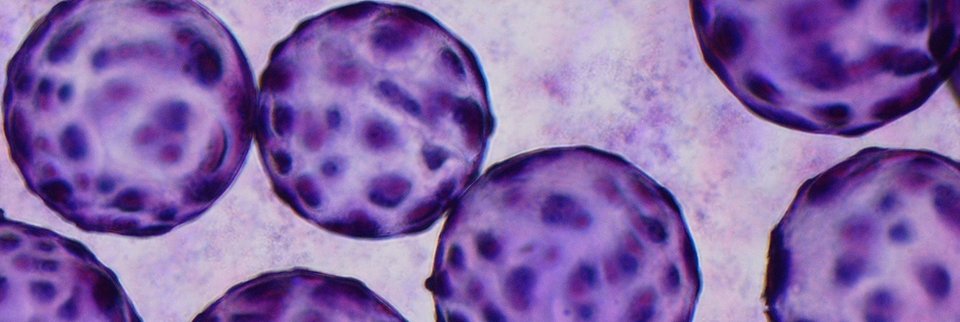Public-Private Partnerships

Treeway’s fight against ALS: a rare disease with worldwide attention
Two patients with Amyothrophic Lateral Sclerosis (ALS) founded the biotech company Treeway to develop drugs against their disease in 2012. By working in collaboration with University Medical Centers in Leiden and Utrecht, Treeway aims to find a treatment for ALS. Last October, Treeway became ‘Company of the Month’ in Tilburg, because of their tireless fight to find a cure for this deadly disease.
Innovative and patient-friendly developments
The Top Sector Life Sciences & Health (LSH) co-funded one of Treeway’s research projects in which they study the possibility of oral administration of the ALS drug edavarone (TW001), a patient-friendly therapy. This public-private project was successfully finished last winter. Top Sector LSH asked Inez de Greef, CEO at Treeway, which follow-up research will be necessary for this oral formulation to reach the clinic.
De Greef: “Treeway's strategy for ALS treatment has three goals: delay – halt – cure. Within the first goal, oral formulation of TW001 will enable a patient-friendly way to delay the disease progression. Before patient trials can start, we have to execute two healthy volunteer studies: 1) to test the exposure of TW001 in the blood with our formulation and 2) to ensure safety of this oral formulation. If all goes as planned, patient studies can start thereafter.”
Patient-involvement in R&D is booming
ALS is called a rare disease, since worldwide only 140,000 people are diagnosed with the disease each year. Nevertheless, ALS has gained considerable awareness in the last couple of years because of the ice bucket challenge, ALS city swims and intensive advertising campaigns. This awareness has resulted in more donations to ALS associations and enables companies like Treeway to conduct their research faster. Additionally, patients take the lead in such developments, as without patients Treeway would not have existed.
Not only within Treeway, patient-involvement becomes more and more common within drug development. The two founders of Treeway, Robbert Jan Stuit and Bernard Muller, are still actively involved in the team. Due to both their profession and their patient perspective they contribute to the company every day.
“First of all, they both have excellent qualities needed for a biotech company like Treeway, but it can be of additional value to discuss some issues directly with patients. It certainly adds to our motivation of finding a therapy for this disease,” says De Greef.
Interested in Treeway? Visit their website or check their public-private partnership on the Health~Holland project page.

Development of next-generation Vero cells to improve vaccine production
Deciphering cellular proteins and pathways involved in virus replication and in suspension growth of Vero cells
Despite the critical role for vaccines in public health, there are issues with costs and manufacturing that prevent a significant portion of the world’s population from accessing vaccines.
The aim of this project is to make the production of viral vaccines less expensive. To achieve this, Intravacc aims at the identification of cellular pathways that are important in virus replication and suspension growth in Vero cells. By permanent modification of the identified host factors, Vero cell lines can be constructed that are better suited for the production of viral vaccines. The industrial partner, Applikon, is aiming at developing disposable, single use bioreactors, which offer flexibility and require less investment in infrastructure compared to conventional bioreactors. Combining these strategies in this partnership will ultimately result in the development of vaccines in less time at lower costs.
This innovative project will lead to more fundamental knowledge on proteins and intracellular pathways important for viral replication by doing siRNA screens. This knowledge will be used to develop new Vero cell lines with modulated host genes using CRISPR-CAS9 that can significantly enhance virus production at reduced costs, thereby promoting global introduction of affordable vaccines. Also, we aim to use the knowledge obtained from the screens to design Vero cells that are capable of growing in suspension, which is a great advantage for easier scale-up and less expensive production of vaccines. The last aim is to develop single-use, disposable bioreactors, that will eliminate the costs in the vaccine production process associated with disassembly, cleaning and reassembly of conventional bioreactors. This offers flexibility in vaccine development, and in change-over from one vaccine manufacturing process to another. In the last phase of this project, the modified Vero cells will be cultured at lab-scale in the disposable bioreactors developed by Applikon.

'Sticky' peptides to fight antimicrobial resistance
PharmAMPs: Pharmaceutical development of antimicrobial peptides for the prevention and treatment of infections against (multi)-drug resistant bacteria.
Antimicrobial peptides (AMPs) are inspired by naturally occurring antimicrobial proteins and peptides, that are produced by all living organisms and can combat bacterial infections, including resistant infections. AMPs are typically small, cationic peptides (“sticky peptides”) that exhibit a broad range of antimicrobial activities, and often also possess immunomodulatory properties. Moreover, intrinsically, they are also more robust towards resistance development than traditional antibiotics. In the recent O’Niell report on solutions to fight AMR, AMPs and their derivatives are ranked amongst the most promising alternatives to traditional antibiotics.
The concept of using AMPs for therapeutic purposes has been around for some time. Unfortunately, the 1st generation AMPs had limitations that prevented further development, especially with regard to their (limited) potency and high cost of goods, resulting in poor commercial perspectives. Several peptides have been tested in clinical studies against a range of topical infections, but their development was halted for these reasons.
A new public private partnership was formed between the Leiden University Medical Centre (LUMC) and Madam Therapeutics with the intent to work on 2nd generation peptides with improved characteristics. Madam Therapeutics, is a near clinical stage biotech company that is developing a new generation of AMPs specifically to combat resistant bacterial infections and to prevent and treat infections that are currently left untreated due to the risk of resistance development with current antibiotics. The new peptides are based on technology from LUMC with whom Madam Therapeutics has been working closely over the recent years to develop the most optimal peptides, which we are now converting into powerful antibacterial products.
Within this PPP, we have established that the lead peptide (SAAP-148) indeed has significant advantages over traditional antibiotics. SAAP-148 was found to be a very effective, broad-spectrum anti-microbial peptide which possesses very rapid bactericidal activity. SAAP-148 has shown in this project to be very effective against bacteria residing in biofilms whereas traditional antibiotics are not. SAAP-148 is also very effective in the killing of (multi-) resistant bacteria and is very robust against resistance formation itself. Finally, we established that SAAP-148 has also shown significantly more potency than 1st generation AMPs in in-vitro comparison studies; in fact we demonstrated that SAAP-148 is one of the first in its class to be active at a sub-micromolar range.
As a follow-up to this project, Madam Therapeutics and LUMC are now preparing the first clinical proof of concept studies with the lead product SAAP-148 formulated as a gel for topical treatment of bacterial infections in chronic wounds, burns and in a nose gel to treat nasal MRSA carriers. In addition, we are also investing possible novel PPPs for collaborative (academic) research efforts and continuous pre-clinical development of other AMP-based products for other indications and other formulations.
